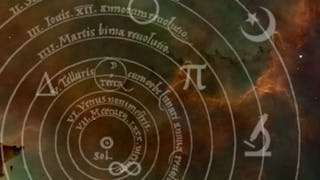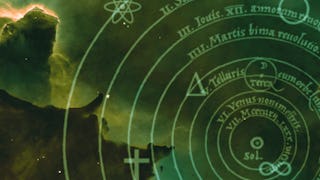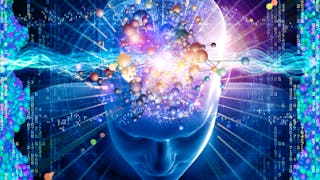Philosophy, Science and Religion mark three of the most fundamental modes of thinking about the world and our place in it. Are these modes incompatible? Put another way: is the intellectually responsible thing to do to ‘pick sides’ and identify with one of these approaches at the exclusion of others? Or, are they complementary or mutually supportive? As is typical of questions of such magnitude, the devil is in the details. For example, it is important to work out what is really distinctive about each of these ways of inquiring about the world. In order to gain some clarity here, we’ll be investigating what some of the current leading thinkers in philosophy, science and religion are actually doing.



Philosophy, Science and Religion: Religion and Science



Instructors: Dr Mog Stapleton
Access provided by New York State Department of Labor
25,523 already enrolled
(205 reviews)
Skills you'll gain
Details to know

Add to your LinkedIn profile
See how employees at top companies are mastering in-demand skills

There are 6 modules in this course
What's included
1 video3 readings1 discussion prompt
In this module Tim Maudlin, Professor of the Foundations of Physics at New York University (NYU) discusses stories and theories of the origins of the cosmos from the perspectives of various religions, philosophy, and Science. He then explains what our physics tells us and compares this to the origins stories.
What's included
6 videos1 reading5 assignments1 peer review2 discussion prompts
In this module Graham Priest, Distinguished Professor of Philosophy at City University of New York (CUNY) outlines the background and basic ideas of Buddhism. After considering whether Buddhism is compatible with science, he goes on to explain how some aspects of Buddhist thought are relevant to contemporary logic and science.
What's included
9 videos5 readings2 peer reviews14 discussion prompts
In this module Kevin Scharp, Reader in Philosophy at the University of St Andrews introduces one of the most common arguments for Intelligent Design and considers whether it is a genuine scientific competitor to, or can even be made compatible with, evolutionary theory. He then presents the Fine-Tuning Argument for the existence of God and its criticisms.
What's included
8 videos1 reading7 assignments1 peer review3 discussion prompts
In this module Bethany Sollereder, Postdoctoral Fellow in Science and Religion at the University of Oxford considers questions that arise in Christian Theology as a result of accepting evolutionary theory.
What's included
6 videos2 readings5 assignments3 discussion prompts
In this module David Clough, Professor of Theological Ethics at Chester University investigates three ways in which the question of human uniqueness prompt questions at the interface of theology and science. It asks ‘Are we alone in the Universe?’, ‘Where did we come from?’ and ‘Are we just animals?’ before going on to consider the ethical implications of a theological approach that engages these questions seriously.
What's included
6 videos9 readings2 assignments1 peer review2 discussion prompts
Instructors



Offered by
Why people choose ����vlog�����ۿ� for their career




Learner reviews
205 reviews
- 5 stars
76.09%
- 4 stars
18.53%
- 3 stars
3.41%
- 2 stars
0.48%
- 1 star
1.46%
Showing 3 of 205
Reviewed on Apr 7, 2022
I never had the opportunity to attend college and at 59 this was an exciting class to take.
Reviewed on Jun 16, 2020
This was a very difficult course for me due to the nature of the subject. However, Dr. Priest did an excellent job explaining the concepts so that I could follow along. Well done.
Reviewed on Aug 14, 2018
A good course that offers some helpful insights that are not immediately obvious to lay people.
Explore more from Arts and Humanities

The University of Edinburgh

The University of Edinburgh

University of Alberta

The University of Edinburgh
¹ Some assignments in this course are AI-graded. For these assignments, your data will be used in accordance with ����vlog�����ۿ�'s Privacy Notice.



